1488 A story of consequence
Face: A Novel of the Anthropocene
by Jaspreet Singh
Victoria: Touchwood Editions, 2022
$22.00 / 9781927366974
Reviewed by Danial Neil
*
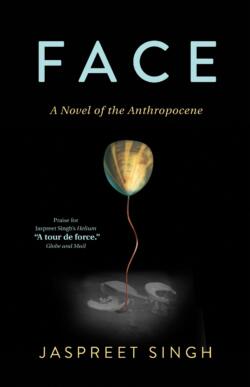 A novel of the Anthropocene, a word with great weight, perhaps not easily used in a sentence or casual conversation. Still, it demands you to look, to understand, to fully come to terms with human existence and its undeniable global-altering effects. Yes, Anthropocene — “the proposed geological epoch dating from the commencement of significant human impact on Earth’s geology and ecosystems.…” (Wikipedia). Oh, how wonderful to be a part of an epoch that may very well lead to the downfall of the human race. Scary stuff to be sure. It is, perhaps, beyond our comprehension to come to terms with its implications on a personal level, never mind on a planetary scale. So, we do our part to mitigate locally what we can, and follow the lead of our scientific community.
A novel of the Anthropocene, a word with great weight, perhaps not easily used in a sentence or casual conversation. Still, it demands you to look, to understand, to fully come to terms with human existence and its undeniable global-altering effects. Yes, Anthropocene — “the proposed geological epoch dating from the commencement of significant human impact on Earth’s geology and ecosystems.…” (Wikipedia). Oh, how wonderful to be a part of an epoch that may very well lead to the downfall of the human race. Scary stuff to be sure. It is, perhaps, beyond our comprehension to come to terms with its implications on a personal level, never mind on a planetary scale. So, we do our part to mitigate locally what we can, and follow the lead of our scientific community.
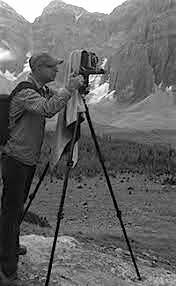
And what better novelist to approach a story of such consequence and import than one who happens to be a former scientist. There is no mistake here. Jaspreet Singh knows his craft of writing, but more importantly knows the science of climate change, and has succeeded in the labs and seminars of research and academia. Singh dared to approach a contemporary novel with the topic of an ominous epoch that threatens society in a devastating way. We hear the warnings, but we cannot stay in the room for long. It is just too damn depressing. It is a most fascinating undertaking, to tell a human story within a story’s demands for characterization, plot, and purpose. It is a novel, after all, a work of fiction. It is not apocalyptic, though the suggestion of such cannot be ignored in the narrative. You can feel the sense of urgency. And yet to read this novel, and to separate yourself from the consequences of your own existence, allows you to defer the despair, and perhaps the remedy, to Lila, the voice and narrative fuse of Face. We join her as she negotiates the scientific landscapes of her world.
An accomplished science journalist in Calgary, Lila finds herself at a crossroads. She is a truth seeker who aptly navigates the intersections of past, present, and future. She is insightful, earnest in her ambitions, savvy, and yet realistic as well, aspiring to expose the caves of scandal and corruption. The story opens at a creative writing class where she meets Lucia, who emerges as a transformative character in the novel:
The women were sitting anomalously close to each other, not saying a word, not gesturing, simply staring at each other’s faces. Both were at once the observer and the observed. Two strangers who had just met.
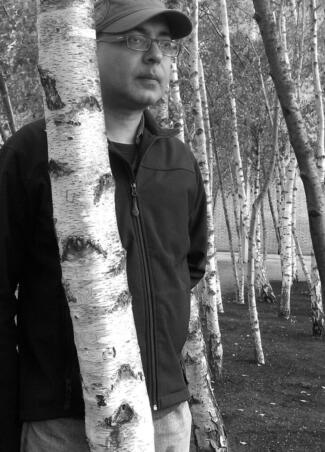
Soon after, Lila’s editor assigns her to investigate a disaster at the city’s climate lab. This begins her search for meaning and ultimately for the truth. She returns to her university days, to the influences of classmates and professors, to the good and the bad. This is all prompted by a face she sees in the present, someone she recognizes, but only in an instinctive way. She wonders. She explores. We come to know the name Vikram Jit, antagonistic in past and in present.
Singh handles the complexity of science deftly, and manages the voice of Lila with confidence. There were moments, however, when I wanted to know more about her, hoped for more flesh on the bone, so to speak. As a reader sharing her journey, I wanted a clearer image of her. This is not to undermine her resolve. She observes:
I am a better journalist than many others of my generation because I am not afraid of taking sides. When interacting with scientists, I side with the general public, and when interacting with the public, I privilege the voice of scientists. The aspiration is to make sure both groups feel well represented, even when one or the other is proven wrong.
I liked the way Face brings in contemporary ideas and nuances of scientific perspective. There are countless examples of research here, most certainly credited to Singh’s personal storehouse of knowledge. The details of a climate lab disaster. The anatomy of fossil origination. And scandals that would surely surprise those of us who think the sciences would ever register on any criminal spectrum. But yes, on closer examination, we can remember when scientific study was, and perhaps still is, subject to government influence and dependent on factual accuracy and legitimacy.
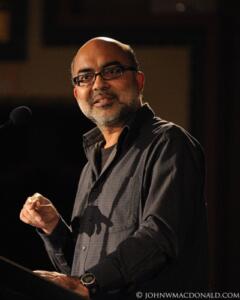
The many Indian references serve as an anchor, a point of reference for us as Lila returns to her roots and offers glimpses of her culture. She is clear. As a migrant, she knows the experience of Canada, what it means, and what it feels like. She says,
Moving to Canada made me encounter yet another type of story, the way the western scholars narrated the Indian scientist, a narration that lacked empirical work and relied more on provincialism, ignorance, and absurd generalizations.
The changing voice of Lila, the narrative, accelerates the pace of the story. Face unfolds with insertions of facts, truths, and surprises towards its final scene.
Face is an intelligent body of work. It requires a certain agreement, asks to be informed by something new. A novel of ideas, it presents slight alterations in narrative perspective and vision that may confuse us at times. Its cohesion may challenge as well and requires our close attention. It takes us around the world and to the very beginning of time. Singh’s authority, though concealed in the still vaults of Lila’s mind, rings true and authentic: “For some Anthropocene is all crime and little punishment. For others it is little crime and all punishment.”
*
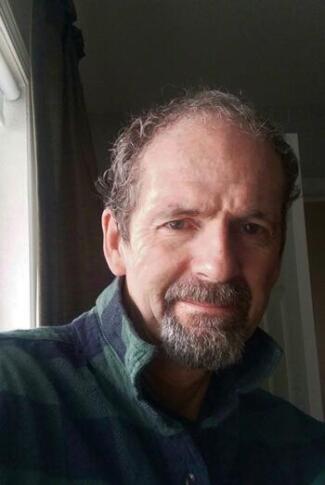
Danial Neil was born in New Westminster in 1954 and grew up in North Delta. He began writing in his teens, journaling and writing poetry. He made a decision to be a writer in 1986 and took his first creative writing course in Langley with Rhody Lake. Danial worked steadily at his craft, completing eight unpublished novels. And then one of his short stories was published in the 2003 Federation of BC Writers (FBCW) anthology edited by Susan Musgrave. He went on to participate in the FBCW’s Write Stretch Program, teaching free verse poetry to children. He won the poetry prize at the Surrey International Writers’ Conference four times and studied Creative Writing at UBC. His poetry and fiction articulate a close relationship with the land, its felt presence in his narrative and vision. He is the author of The Killing Jars (Trafford, 2006), Flight of the Dragonfly (Borealis/Tecumseh, 2009), The Trees of Calan Gray (Oolichan, 2015), my June (Ronsdale, 2014), Dominion of Mercy (NeWest Press, 2021), The Sum of One Man’s Pleasure (NeWest Press, forthcoming 2024), and contributor to the poetry anthology Worth More Standing (Caitlin Press, 2022). Danial lives on Vancouver Island. Editor’s note: Dan Neil has also reviewed a book by Brian Thomas Isaac for The British Columbia Review, and his book Dominion of Mercy is reviewed here by Zoe McKenna.
*
The British Columbia Review
Publisher and Editor: Richard Mackie
Formerly The Ormsby Review, The British Columbia Review is an on-line journal service for BC writers and readers. The Advisory Board consists of Jean Barman, Wade Davis, Robin Fisher, Cole Harris, Hugh Johnston, Kathy Mezei, Patricia Roy, Maria Tippett, and Graeme Wynn. Provincial Government Patron (since September 2018): Creative BC. Honorary Patron: Yosef Wosk. Scholarly Patron: SFU Graduate Liberal Studies.
“Only connect.” – E.M. Forster
One comment on “1488 A story of consequence”